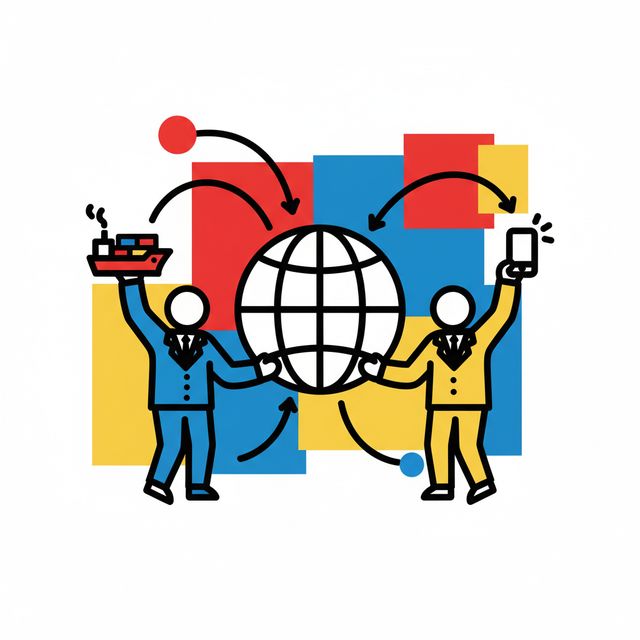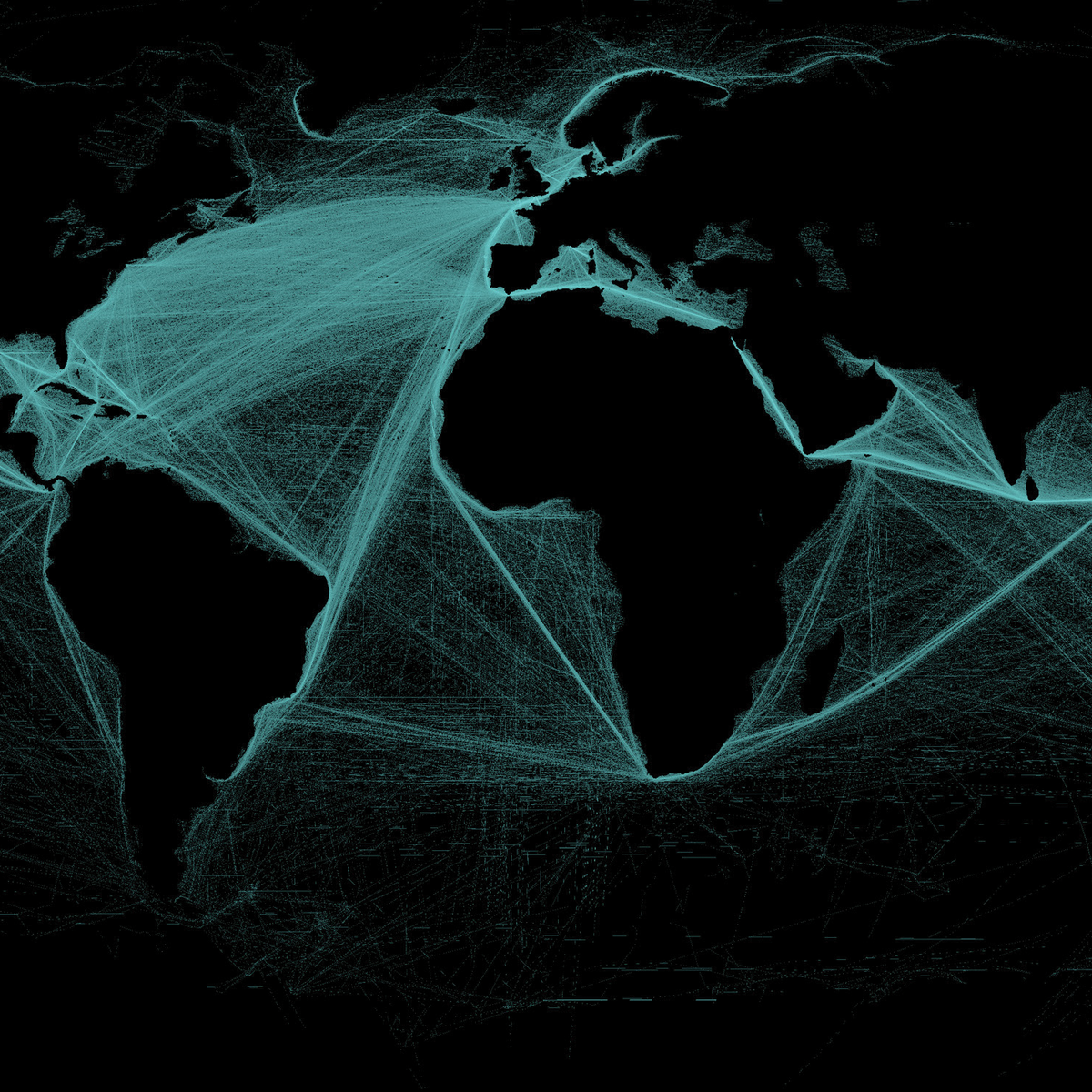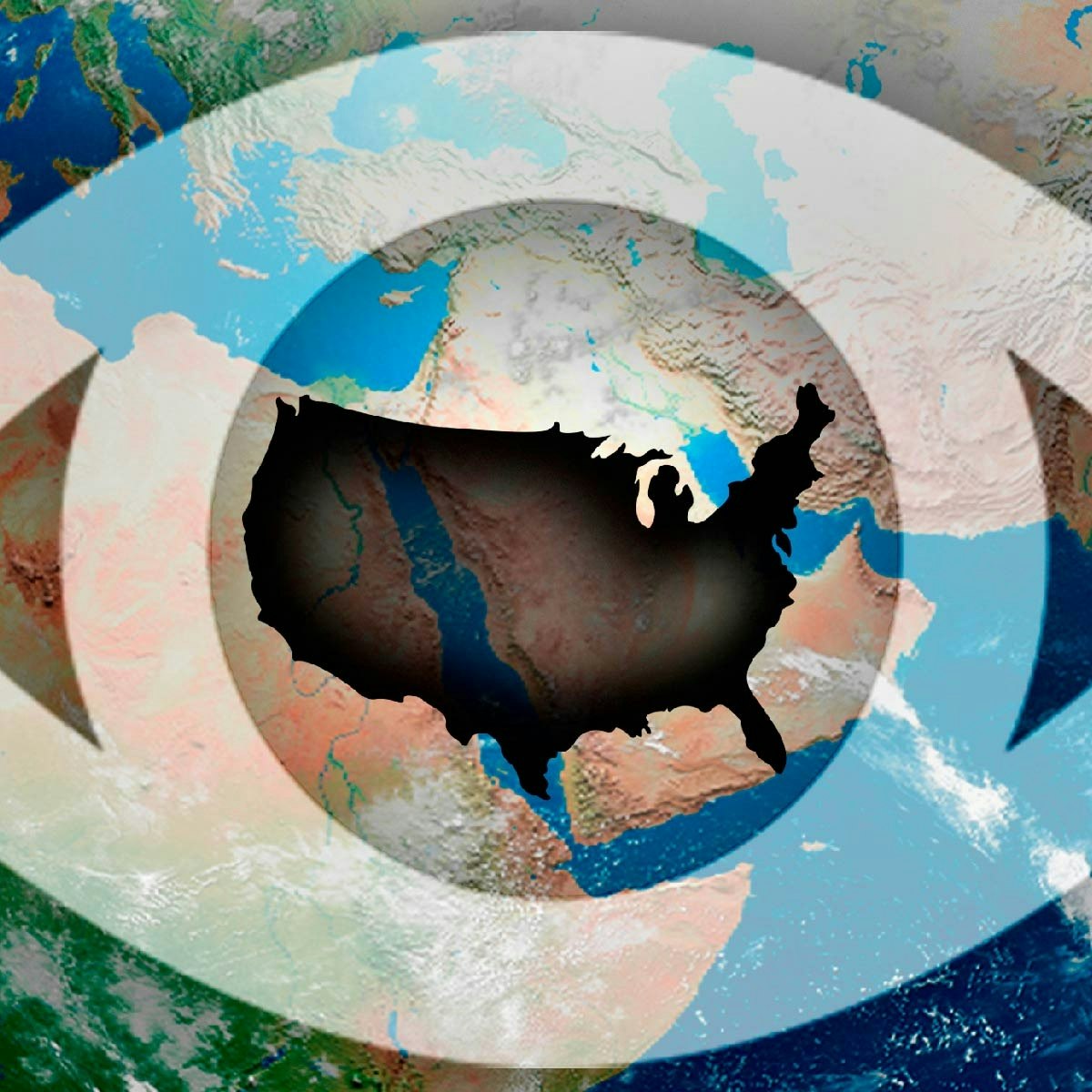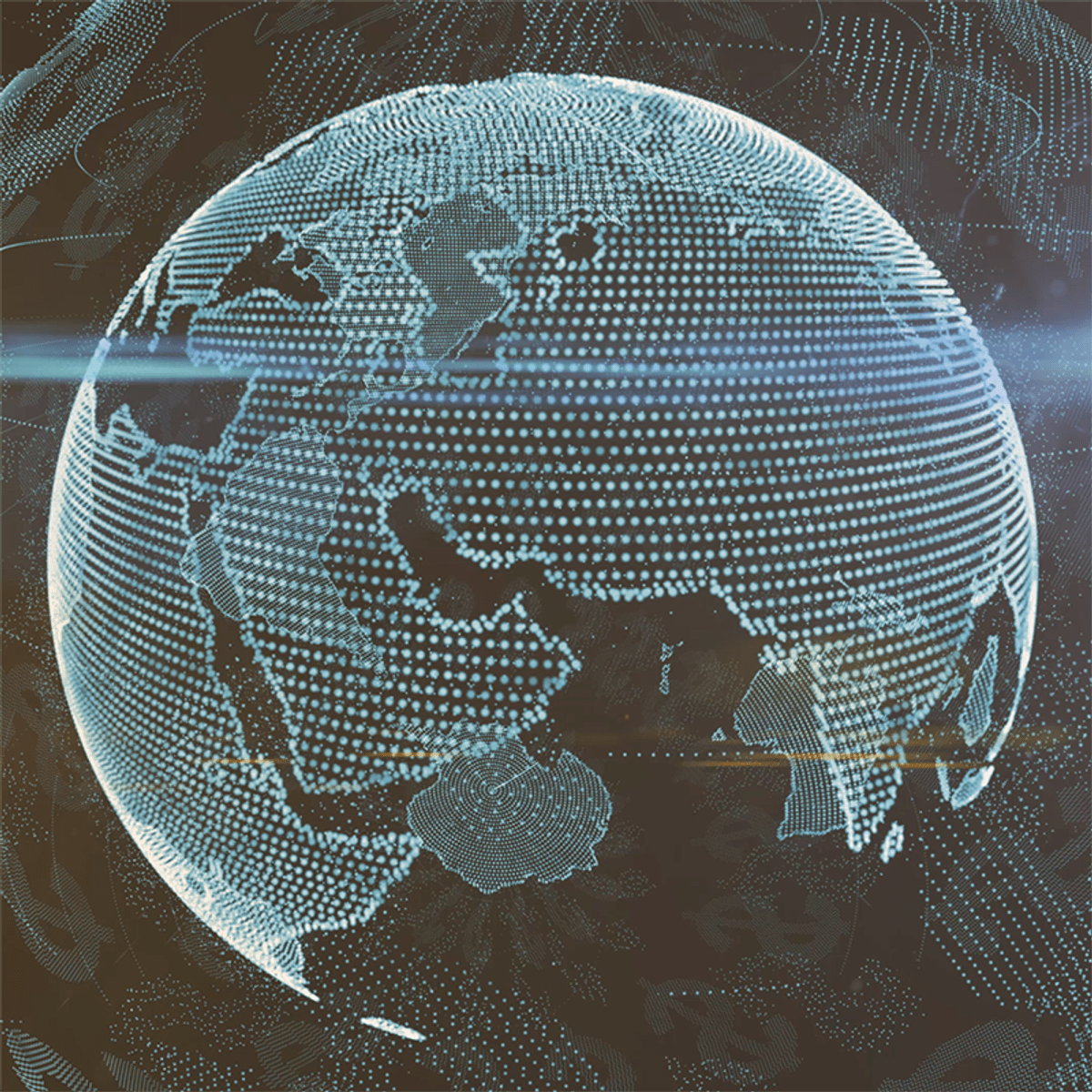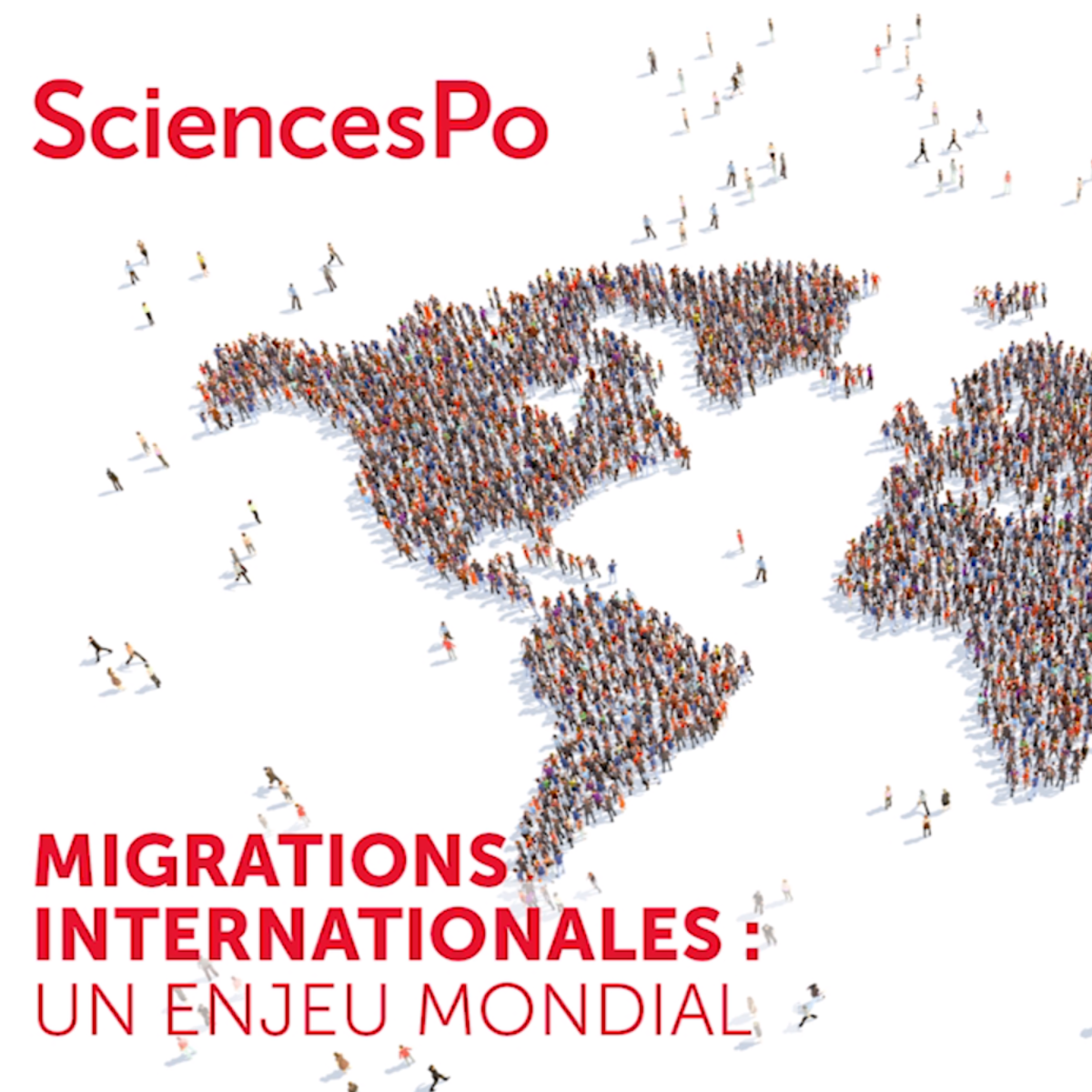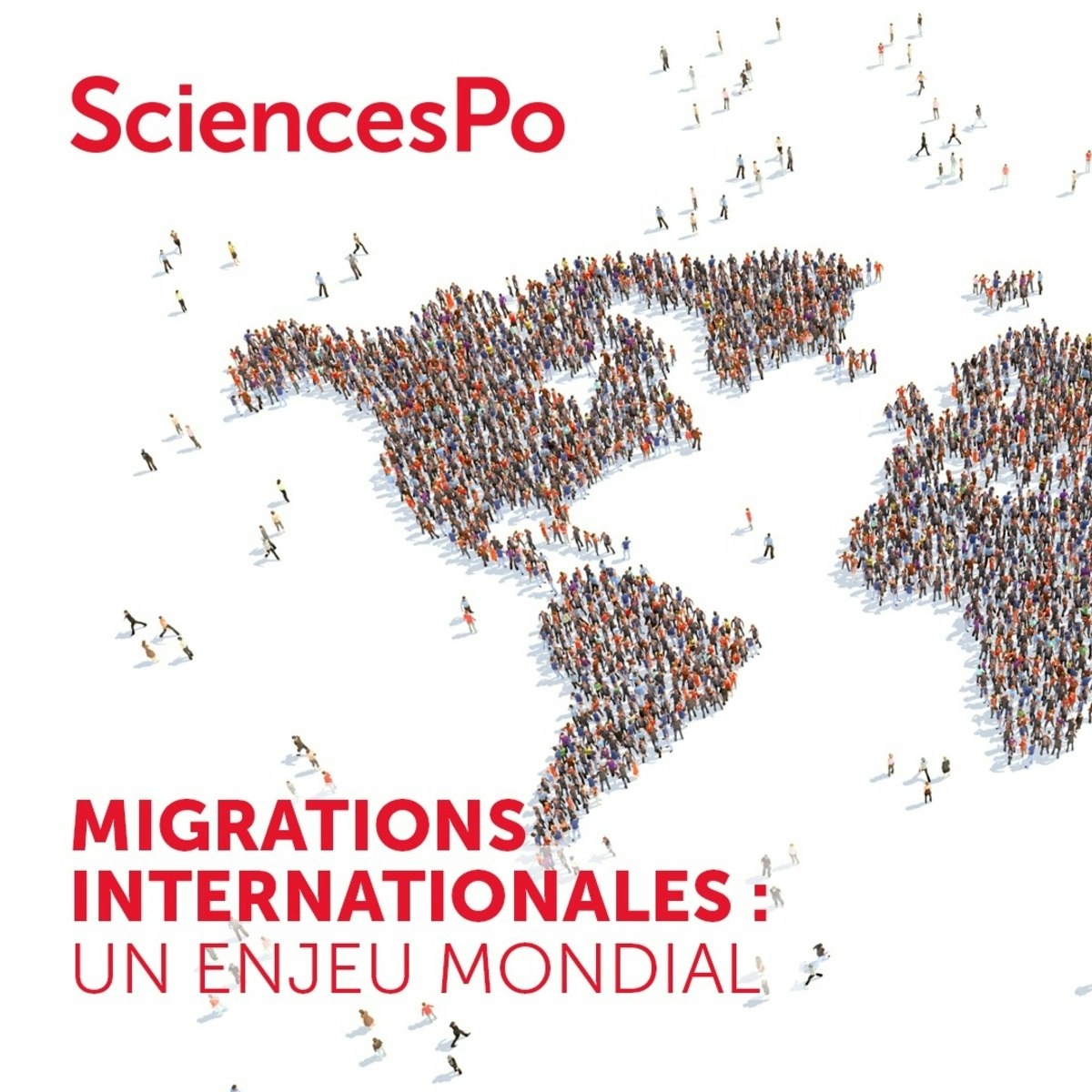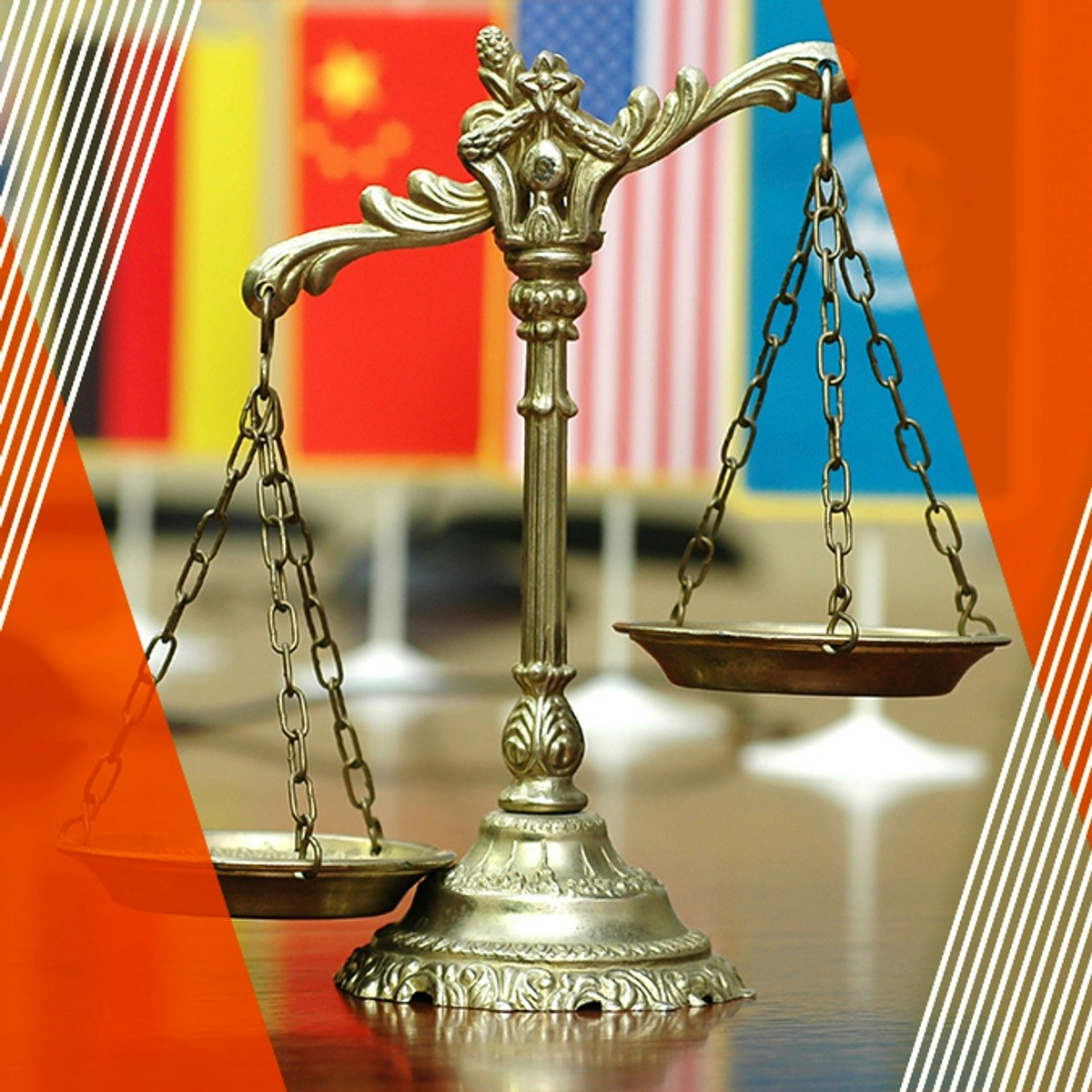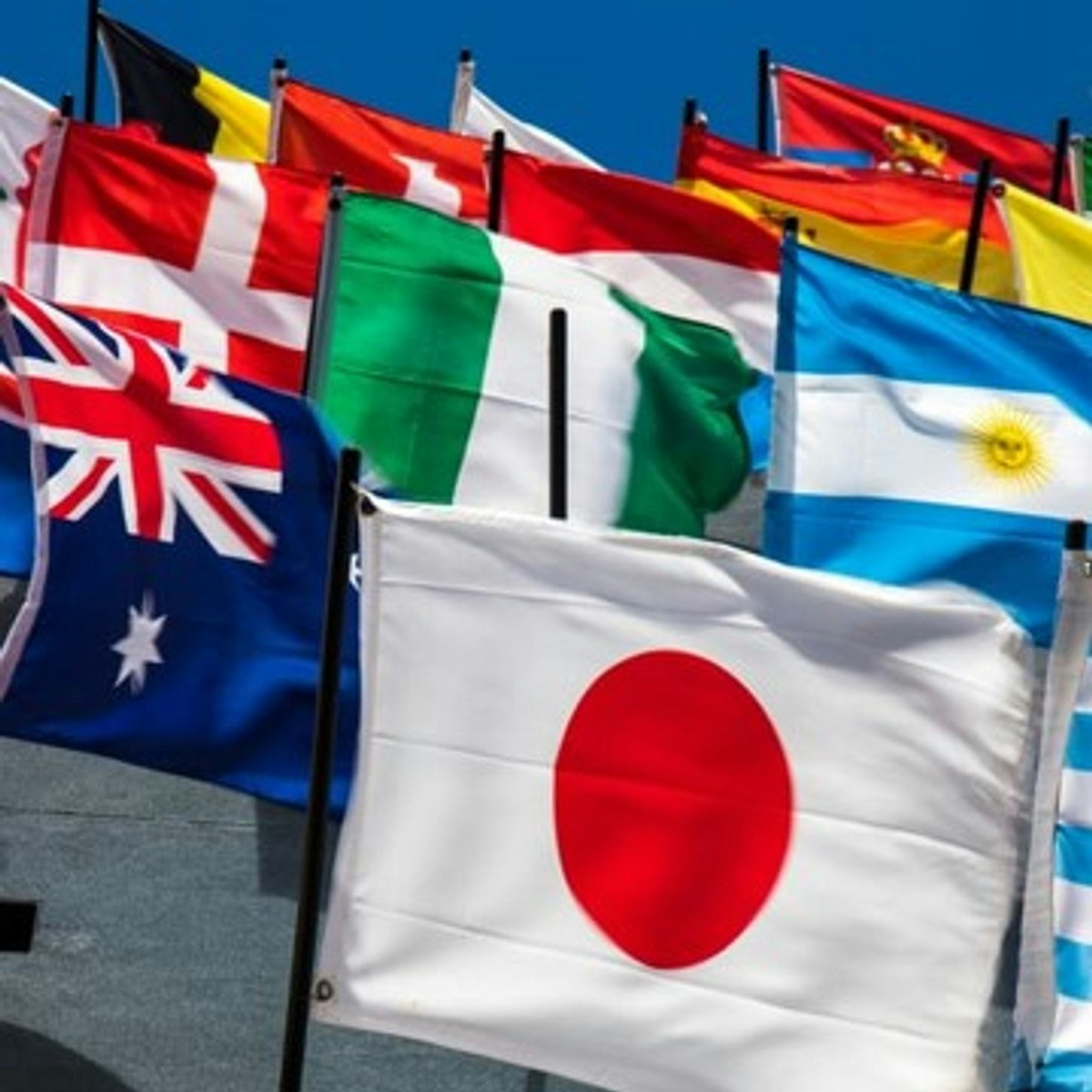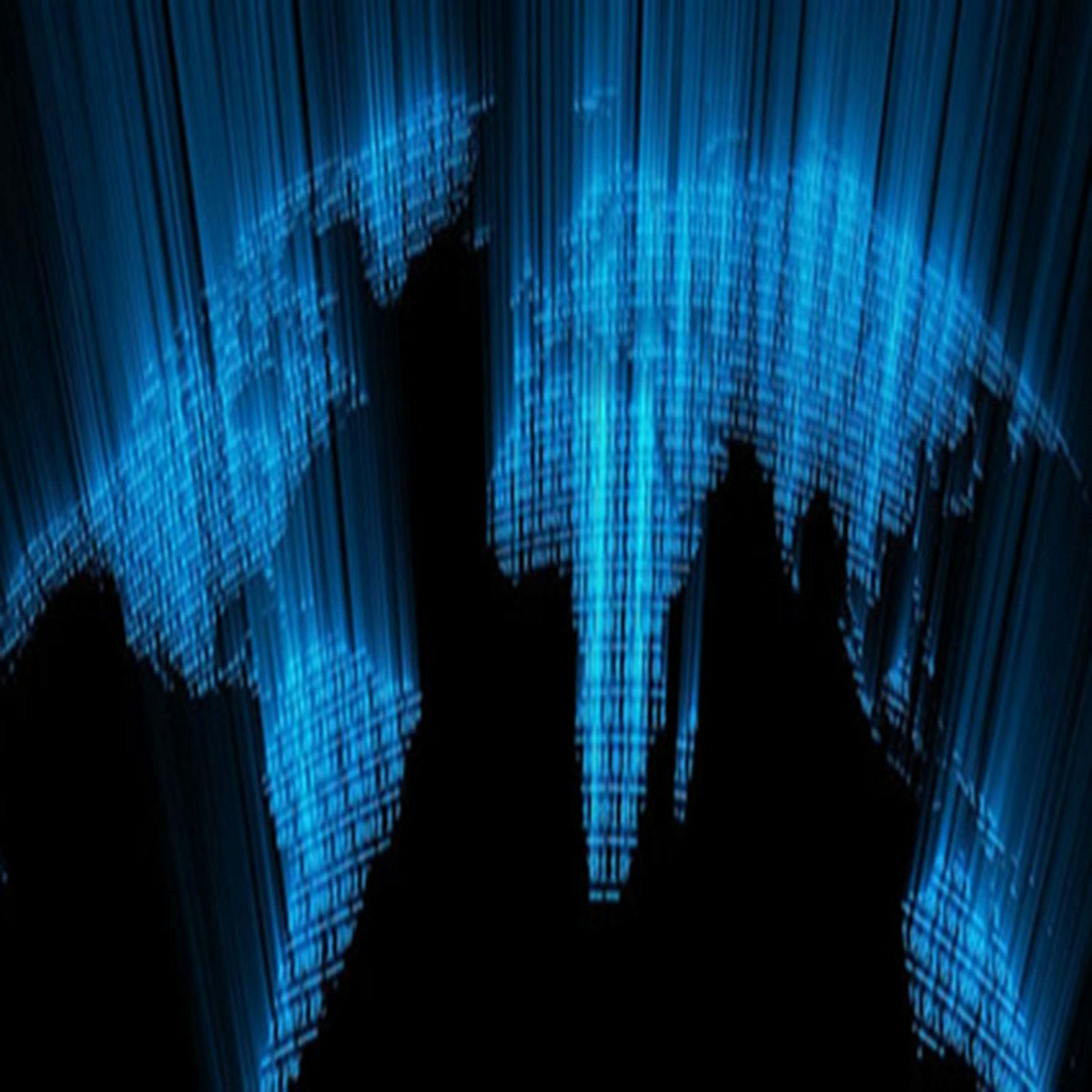Globalization
Navigating the Tides of Globalization
Globalization, at its core, signifies the increasing interconnectedness and interdependence of countries worldwide. This intricate process involves the heightened integration of economies, cultures, and societies, driven by cross-border trade in goods and services, flows of investment, the movement of people, and the rapid exchange of information and technology. While its roots can be traced back to ancient trade routes and early human migrations, the form of globalization we recognize today accelerated significantly in the 19th century, propelled by technological advancements in transportation and communication, and has continued to evolve, particularly with the digital revolution of recent decades.
Exploring the multifaceted world of globalization can be an intellectually stimulating journey. It offers a lens through which to understand complex global economic shifts, from the intricacies of international supply chains to the dynamics of multinational corporations. Furthermore, it provides insights into the fascinating interplay of cultures, observing how ideas, values, and practices are exchanged and transformed across borders. For those intrigued by the forces shaping our contemporary world, a deep dive into globalization can be both enlightening and professionally rewarding, opening doors to diverse fields such as international business, policy analysis, and cultural studies.
Introduction to Globalization
Understanding globalization requires a grasp of its vast scope and its dynamic nature. It's not merely an economic phenomenon but also encompasses social, cultural, political, and technological dimensions that reshape how societies interact and develop on a global scale.
Defining Globalization and Its Scope
Globalization refers to the intensification of worldwide social relations which link distant localities in such a way that local happenings are shaped by events occurring many miles away and vice versa. It involves the increasing integration of economies through the movement of goods, services, and capital across borders. This process is characterized by the reduction of barriers to international trade and investment, the liberalization of capital movements, advancements in transportation, and the revolutionary impact of information and communication technologies.
The scope of globalization is extensive, touching nearly every aspect of modern life. Economically, it involves the global marketplace for goods, services, data, and capital. Culturally, it signifies the transmission of ideas, meanings, and values around the world, leading to both the spread of common cultural products and the potential for new hybrid cultural forms. Politically, globalization involves the growing influence of international organizations and the complex interplay between national sovereignty and global governance. The International Monetary Fund (IMF) identifies four key aspects: trade and transactions, capital and investment movements, migration, and the dissemination of knowledge.
This interconnectedness means that decisions made in one part of the world can have significant consequences elsewhere, creating both opportunities and challenges. It fuels economic growth for some, but can also lead to increased competition and disparities for others. Understanding this broad scope is fundamental to comprehending the complex dynamics of our increasingly integrated world.
These courses provide a foundational understanding of the multifaceted nature of globalization.
Historical Evolution from Ancient Trade to Modern Interconnectedness
While the term "globalization" gained common usage in the latter half of the 20th century, particularly in the 1980s and 1990s, the processes it describes have deep historical roots. Some scholars trace early forms of globalization back thousands of years to ancient trade links, such as those between Sumer and the Indus Valley civilization, or the expansive trade along the Silk Road which, as early as the 1st century BC, saw luxury goods from China reach Rome. These early connections, though limited in scale compared to today, laid the groundwork for cross-cultural exchange and economic interaction.
A more recognizable form of globalization began to emerge in the Age of Discovery (15th-18th centuries), with European maritime empires establishing extensive trade routes. Companies like the British East India Company and the Dutch East India Company, often considered early multinational corporations, played a significant role in expanding global trade during the 17th century. However, it was the 19th century, with the Industrial Revolution, that marked a significant acceleration. Innovations like steamships and railroads dramatically reduced transportation costs, while the telegraph enabled faster communication across distances. This period saw a rapid expansion in the connectivity of world economies and cultures.
The momentum of globalization slowed during the first half of the 20th century due to world wars and the Cold War. However, a new wave, often termed "Globalization 2.0" or "Globalization 3.0," began after World War II and intensified from the 1980s onward. This phase has been characterized by the rise of neoliberal economic policies, further reductions in trade barriers, the proliferation of multinational corporations, and, crucially, the digital revolution. The internet and advanced communication technologies have made international transactions, information sharing, and cultural exchange faster and more widespread than ever before. Today, we are arguably in a "Globalization 4.0" phase, increasingly shaped by digital interconnectedness and the global trade of services.
To delve deeper into the historical progression of global interconnectedness, consider these resources.
These books offer detailed accounts of globalization's historical trajectory.
You may also wish to explore this related topic.
Key Drivers of Globalization
Several interconnected factors have propelled the process of globalization. Technological advancements stand out as a primary engine. The development of the internet, mobile communications, and digital platforms has dramatically lowered the cost and increased the speed of information exchange across borders, facilitating e-commerce and global collaboration. Improvements in transportation technology, from container shipping to more efficient air travel, have made the movement of goods and people faster and more economical.
Policy changes and political will have also been crucial. The widespread adoption of policies aimed at liberalizing trade and investment, such as the reduction of tariffs and other trade barriers, has fostered greater economic integration. The establishment and influence of international organizations like the World Trade Organization (WTO), the International Monetary Fund (IMF), and the World Bank have provided frameworks and promoted policies that encourage cross-border economic activity. Regional trade blocs such as the European Union (EU) and the North American Free Trade Agreement (NAFTA) (now USMCA) have further spurred integration among member countries.
Economic factors, including the pursuit of new markets and more efficient production, are also significant drivers. Multinational corporations seek to expand their reach, access diverse talent pools, and optimize their supply chains by operating globally. The increasing desire of consumers for a wider variety of goods and services at competitive prices also fuels international trade. Furthermore, financial liberalization and the integration of global capital markets have enabled easier movement of investment funds across borders. These drivers often interact, with technological progress enabling new forms of economic activity and policy decisions shaping the environment in which these activities occur.
These courses can help build a foundation for understanding the forces behind globalization.
Globalization vs. Regionalization/Localization
While globalization refers to the increasing interconnectedness on a worldwide scale, it's important to distinguish it from related but distinct concepts like regionalization and localization. Regionalization involves the intensification of economic, political, and social interactions *within* a specific geographic region, often leading to the formation of regional blocs or agreements (e.g., the European Union, ASEAN). While regionalization can be a step towards broader globalization, it can also represent a strategy where countries prioritize deeper ties with their neighbors over more distant global connections. Sometimes, regional integration can act as a building block for global integration, but it can also lead to trade diversion if regional preferences create barriers for outsiders.
Localization, on the other hand, emphasizes the adaptation of global products, services, or ideas to suit the specific tastes, customs, and regulations of a local market. This can be seen as a response to globalization, where global companies tailor their offerings to resonate with local consumers, acknowledging that a one-size-fits-all approach is often ineffective. For example, fast-food chains often modify their menus in different countries to cater to local palates. Localization can also refer to movements that prioritize local economies, cultures, and production, sometimes as a reaction against perceived negative impacts of globalization, such as the homogenization of culture or the dominance of large multinational corporations.
There's often a dynamic interplay between these forces. Globalization can drive localization as companies seek to penetrate diverse markets. Conversely, strong local identities and preferences can shape the way global trends are adopted or resisted. Regionalization might also act as an intermediary step, where countries within a region coordinate their approach to global engagement. Understanding these distinctions helps in analyzing the complex and sometimes contradictory ways in which global, regional, and local forces interact and shape our world.
This course explores the interplay between global and local dynamics.
Theories and Frameworks of Globalization
To fully grasp the complexities of globalization, scholars have developed various theories and frameworks. These conceptual tools help to analyze its drivers, manifestations, and consequences from different perspectives. Understanding these theories provides a deeper appreciation for the academic debates surrounding globalization and its multifaceted impacts on societies, economies, and cultures.
World Systems Theory and Dependency Dynamics
World Systems Theory, most notably associated with sociologist Immanuel Wallerstein, offers a macro-scale approach to understanding global interconnections. This theory posits that the global system is characterized by an economic and political hierarchy, dividing the world into core, semi-periphery, and periphery countries. Core countries are typically wealthy, industrialized nations that dominate global finance and technology, benefiting most from the global economic system. Periphery countries are often less developed, provide raw materials and cheap labor to the core, and experience economic and political dependence. Semi-periphery nations exhibit characteristics of both core and periphery, acting as intermediaries and sometimes experiencing upward or downward mobility within the system.
Dependency dynamics are central to this framework. The theory argues that the development of core nations is intrinsically linked to the underdevelopment or dependent development of peripheral nations. Historical processes, such as colonialism and neocolonialism, are seen as establishing and maintaining these unequal relationships. Critics of simple dependency theory sometimes point out its deterministic nature, but World Systems Theory emphasizes the dynamic and evolving nature of this global structure, acknowledging shifts in power and the potential for change over time.
This perspective challenges the notion that all countries follow a similar path to development and highlights the structural inequalities embedded within the global capitalist economy. It encourages a critical examination of how global economic processes reproduce or transform these power imbalances. Understanding this theory provides a critical lens for analyzing issues like global inequality, international trade relations, and the distribution of wealth and resources. According to some analyses, the global structure perpetuates inequality by exploiting resources and labor from developing regions, reinforcing dependency.
These books explore some of the power dynamics inherent in global systems.
Neoliberal Globalization Frameworks
Neoliberal globalization frameworks are rooted in classical liberal economic thought and emphasize the benefits of free markets, minimal state intervention, and the free flow of capital, goods, and services across borders. Proponents of this view argue that such policies lead to greater economic efficiency, innovation, and overall global prosperity. Key tenets include deregulation, privatization of state-owned enterprises, fiscal austerity, and trade liberalization. Institutions like the International Monetary Fund (IMF) and the World Bank have historically promoted neoliberal policies, often as conditions for financial assistance to developing countries through Structural Adjustment Programs (SAPs).
This framework sees globalization as a largely positive force, driven by market dynamics and technological progress, which allows countries to specialize according to their comparative advantages, leading to increased productivity and economic growth. The expansion of multinational corporations is viewed as a key mechanism for transferring capital, technology, and managerial expertise, thereby contributing to development. Consumer choice is expanded, and prices are often lowered due to increased competition.
However, neoliberal globalization has also faced significant criticism. Critics argue that it can exacerbate inequalities both within and between countries, lead to a "race to the bottom" in labor and environmental standards, and undermine social safety nets. The emphasis on deregulation is sometimes blamed for financial instability and crises. The power of multinational corporations is also a concern, with some arguing that it can overshadow national sovereignty and democratic accountability. Despite these criticisms, neoliberal ideas continue to be influential in shaping global economic policies and the discourse around globalization.
This course examines economic policies and their global impact.
This book provides a critical perspective on dominant economic approaches.
Cultural Hybridization vs. Homogenization
One of the most debated aspects of globalization is its impact on culture. Two contrasting theoretical perspectives often frame this discussion: cultural homogenization and cultural hybridization. Cultural homogenization, sometimes referred to as "cultural imperialism" or "McDonaldization," suggests that globalization leads to the erosion of local cultures and the spread of a dominant, often Western, global culture. This perspective highlights the power of global media, multinational corporations, and consumerism in disseminating standardized cultural products, values, and lifestyles worldwide, potentially leading to a loss of cultural diversity and unique local traditions.
In contrast, cultural hybridization emphasizes the dynamic interplay and fusion of different cultural elements. This view argues that globalization does not simply impose a monolithic global culture but rather facilitates complex interactions where global and local influences intermingle, creating new, syncretic, or hybrid cultural forms. Instead of local cultures passively succumbing to global forces, they actively engage with, adapt, and reinterpret external influences, leading to vibrant new expressions in music, food, fashion, language, and art. This perspective sees globalization as a process that can enrich cultures and foster creativity through cross-cultural exchange.
The reality is likely a complex mix of both processes. While there is evidence of the widespread influence of global brands and media, local cultures often demonstrate remarkable resilience and adaptability, reinterpreting global products and ideas to fit local contexts. The debate continues regarding the extent to which globalization fosters genuine cultural diversity versus a more superficial "global village" characterized by sameness. Understanding these dynamics is crucial for appreciating the nuanced ways cultures evolve in an interconnected world.
These courses explore the cultural dimensions of globalization.
This book delves into the relationship between globalization and culture.
Transnationalism and Network Theories
Transnationalism focuses on the sustained linkages and ongoing exchanges that connect individuals, groups, organizations, and communities across national borders. Unlike traditional international relations, which centers on state-to-state interactions, transnationalism emphasizes the role of non-state actors and the dense webs of relationships that bypass or operate in parallel to formal state structures. This includes migrants maintaining ties with their home countries, multinational corporations operating across multiple jurisdictions, international non-governmental organizations (INGOs) advocating for global causes, and even criminal networks.
Network theories, closely related to transnationalism, provide a framework for understanding globalization as a system of interconnected nodes and flows. Concepts like "network society," popularized by Manuel Castells, suggest that contemporary social, economic, and political life is increasingly organized around global networks facilitated by information and communication technologies. These networks are characterized by flexibility, decentralization, and the ability to rapidly transmit information and resources. Power in this context is often seen as residing in the ability to control and shape these network flows.
Together, transnationalism and network theories offer valuable insights into how globalization reconfigures social space and power relations. They highlight the declining exclusive importance of the nation-state as the sole or primary unit of analysis and draw attention to the diverse actors and complex interdependencies that characterize the global landscape. These perspectives are useful for analyzing phenomena such as global migration patterns, the operations of multinational corporations, the spread of social movements, and the functioning of global financial markets. They emphasize a more fluid and interconnected world where boundaries are porous and relationships span multiple localities and scales.
This course provides insights into how networks function in a global context.
This book is a seminal work on the concept of the network society.
Globalization's Economic Dimensions
The economic facets of globalization are perhaps its most visible and widely discussed. The increasing integration of national economies into a global marketplace has profound implications for trade, investment, labor, and finance. Understanding these dimensions is critical for businesses, policymakers, and individuals navigating the opportunities and challenges of an interconnected world economy.
Global Supply Chains and Trade Liberalization
Global supply chains are a hallmark of economic globalization. They involve the complex network of organizations, people, activities, information, and resources required to move a product or service from its conception, through sourcing raw materials and manufacturing, to its delivery to the end consumer. Companies increasingly fragment their production processes across multiple countries to take advantage of cost efficiencies, specialized skills, and access to resources. For instance, a smartphone might have its components designed in one country, manufactured in several others, assembled in yet another, and then marketed and sold worldwide. This intricate web has allowed for greater efficiency and lower consumer prices but also creates vulnerabilities to disruptions, as seen during global events like pandemics or geopolitical tensions.
Trade liberalization, the reduction or elimination of barriers to international trade such as tariffs, quotas, and non-tariff barriers, has been a key enabler of the expansion of global supply chains and overall international trade. Agreements negotiated through bodies like the World Trade Organization (WTO) and various regional trade agreements have aimed to create a more open global trading system. Proponents argue that trade liberalization promotes economic growth by allowing countries to specialize in what they produce best (comparative advantage), increasing efficiency, and fostering competition. However, critics point to potential downsides, such as job losses in industries that cannot compete with cheaper imports and concerns about the impact on labor standards and environmental protection in countries with weaker regulations.
The World Bank's World Development Report 2020 offers extensive analysis on global value chains and their role in development.
These courses offer insights into international trade and supply chains.
Role of Multinational Corporations
Multinational corporations (MNCs) are central actors in economic globalization. These are large companies that operate in multiple countries, with headquarters typically in one nation (the home country) and operations (subsidiaries, branches, manufacturing plants) in several others (host countries). MNCs drive globalization through foreign direct investment (FDI), where they invest in or acquire assets in foreign countries. This can involve setting up new production facilities, acquiring existing companies, or forming joint ventures.
MNCs play a significant role in transferring capital, technology, and managerial expertise across borders. They are key architects of global supply chains and often have substantial influence on international trade patterns and economic development in host countries. For developing nations, attracting FDI from MNCs can bring benefits such as job creation, access to new technologies, and integration into the global economy. However, the activities of MNCs can also be controversial. Concerns include their potential to exploit lower labor costs and weaker environmental regulations in some host countries, their impact on local businesses, issues related to profit repatriation and taxation, and their considerable economic and sometimes political power.
The strategies and operations of MNCs are constantly evolving in response to global economic shifts, technological advancements, and changing regulatory landscapes. Understanding their role is crucial for analyzing global economic trends, international business strategy, and the dynamics of economic development. According to the United Nations Conference on Trade and Development (UNCTAD), MNCs are significant drivers of global investment flows.
The following courses explore strategies relevant to multinational enterprises.
Labor Market Impacts (Outsourcing, Wage Disparities)
Globalization has significantly reshaped labor markets worldwide. One of the most prominent impacts is the rise of outsourcing and offshoring, where companies relocate certain business processes or manufacturing operations to other countries, often to take advantage of lower labor costs. This can lead to job creation in the host countries receiving these investments, but it can also result in job displacement and downward pressure on wages for certain segments of the workforce in the home countries, particularly for low-skilled or manufacturing jobs. For example, the Economic Policy Institute reported significant manufacturing job losses in the U.S. linked to trade with China.
Wage disparities are another key concern. Globalization can widen the gap between high-skilled and low-skilled workers within countries. Workers with skills in high demand in the global economy (e.g., in technology, finance) may see their wages increase, while those whose jobs are more susceptible to international competition or automation may experience stagnant or declining wages. There is evidence suggesting that technology and FDI flows are strong contributors to growing wage inequality in the developing world. This can contribute to rising income inequality.
Furthermore, globalization raises questions about labor standards and working conditions. In the pursuit of lower costs, companies might operate in countries with less stringent labor laws and worker protections, leading to concerns about exploitation. While globalization can bring economic benefits through increased efficiency and lower prices, its impact on labor markets is complex and often unevenly distributed, necessitating policy discussions around worker retraining, social safety nets, and international labor standards. The International Labour Organization (ILO) frequently analyzes the effects of globalization on employment and labor rights.
This course provides insights into labor market dynamics.
Currency Markets and Financial Integration
The globalization of finance refers to the increasing integration of financial markets across the world, facilitated by the liberalization of capital flows, technological advancements in trading and communication, and financial innovation. This integration means that capital can move more freely and quickly across borders, allowing investors to diversify their portfolios and businesses to access funding from a global pool of capital. Currency markets, also known as foreign exchange (forex or FX) markets, are a critical component of this financial integration. They are where currencies are traded, and they determine exchange rates, which significantly impact international trade and investment.
Increased financial integration offers several potential benefits, including more efficient allocation of capital, greater opportunities for risk-sharing, and potentially lower costs of capital. Developing countries, in particular, can benefit from access to foreign investment to fund development projects. However, financial globalization also comes with risks. The rapid movement of "hot money" (short-term speculative capital) can lead to financial volatility and increase the risk of financial crises, particularly in countries with weaker financial institutions or macroeconomic policies. Currency fluctuations can also create uncertainty for businesses involved in international trade.
Supranational institutions like the International Monetary Fund (IMF) play a role in overseeing the international monetary system and providing assistance to countries facing balance of payments difficulties. The increasing interconnectedness of financial markets means that financial shocks in one part of the world can quickly spread to others, highlighting the need for robust regulatory frameworks and international cooperation to manage systemic risks. The IMF's Global Financial Stability Report provides regular assessments of the global financial system.
These courses can help you understand the financial aspects of globalization.
You may also find this topic relevant.
Cultural and Social Impacts
Beyond its economic dimensions, globalization profoundly influences cultures and societies around the world. The increased flow of people, ideas, media, and consumer goods across borders leads to complex interactions that reshape identities, communities, and social movements. These impacts are often multifaceted, presenting both opportunities for enrichment and challenges to existing norms and traditions.
Cross-cultural Exchange and Identity Shifts
Globalization facilitates unprecedented levels of cross-cultural exchange. Through travel, migration, international education, and the global reach of media and the internet, individuals are exposed to a wider array of cultural practices, beliefs, and values than ever before. This can lead to greater intercultural understanding, empathy, and the borrowing and blending of cultural elements, enriching local cultures with new perspectives and expressions. For example, the global popularity of diverse cuisines, music genres, and artistic styles illustrates this vibrant exchange.
However, this intensified interaction can also lead to identity shifts and challenges. Individuals, particularly migrants or those living in highly diverse societies, may navigate multiple cultural influences, leading to the formation of hybrid or transnational identities. While this can be a source of personal growth and creativity, it can also create feelings of dislocation or a questioning of one's "original" cultural identity. There are concerns that the dominance of certain global cultures, often Western, might lead to the erosion of local traditions and languages, a phenomenon that some describe as cultural homogenization. A study by the Pew Research Center found that majorities in many countries worry their traditional way of life is being lost due to foreign influence.
The dynamic between preserving cultural heritage and embracing global influences is a key tension in many societies. Some individuals and communities actively resist perceived cultural threats, while others find ways to creatively fuse local and global elements, leading to new cultural expressions. Understanding these processes is vital for navigating an increasingly interconnected and diverse world.
These courses explore the interaction of cultures in a globalized context.
This book examines how globalization shapes cultural identities.
You may also find this topic of interest.
Global Media and Consumer Culture
Global media conglomerates and the internet play a powerful role in shaping a global consumer culture. Television shows, movies, music, social media platforms, and advertising from dominant cultural centers, particularly the United States, reach vast international audiences. This exposure can lead to the widespread adoption of certain consumer goods, fashion trends, lifestyles, and even values, creating a sense of shared global cultural experience, especially among younger generations.
The rise of global brands and their sophisticated marketing strategies contribute significantly to this phenomenon. These brands often aim to create aspirational lifestyles associated with their products, which can transcend national boundaries. While this can offer consumers more choices and access to diverse products, it also raises concerns about the potential for cultural homogenization, where local products and cultural expressions struggle to compete with the marketing power of global giants. The pervasiveness of global media can influence perceptions, tastes, and even social norms in various parts of the world.
However, the flow of media and consumer culture is not always unidirectional. The rise of "contra-flow" from non-Western countries, such as the global popularity of K-pop from South Korea, Bollywood films from India, or anime from Japan, demonstrates that cultural influence is becoming more multidirectional. Furthermore, audiences are not passive recipients; they often interpret and adapt global media content to fit their own cultural contexts, a process known as "glocalization." The interplay between global media dissemination and local reception creates a complex and evolving cultural landscape.
Consider these courses to understand media's global impact.
Migration Patterns and Diaspora Communities
Globalization has intensified and diversified international migration patterns. Factors such as economic opportunities, political instability, conflict, and easier transportation and communication have led to increased movement of people across borders, both voluntary and forced. This includes labor migrants seeking better employment, skilled professionals moving for career advancement, students pursuing education abroad, refugees fleeing persecution, and families reuniting.
These movements result in the growth of diaspora communities – groups of people living outside their ancestral homeland who maintain emotional, cultural, and sometimes economic ties to their place of origin. Diasporas play a significant role in globalization by facilitating cross-border flows of remittances, investments, ideas, and cultural practices. They often act as bridges between their host and home countries, contributing to cultural diversity in their new societies while also influencing social and economic developments in their countries of origin.
The experiences of migrants and diaspora communities are diverse and complex. While migration can offer opportunities for personal and economic advancement, it can also involve challenges such as adapting to new cultures, facing discrimination, and maintaining a sense of identity. Host societies also experience changes, grappling with issues of integration, multiculturalism, and national identity. Understanding contemporary migration patterns and the role of diasporas is essential for comprehending the social fabric of a globalized world.
These courses examine migration in a global context.
Social Movements (e.g., Climate Activism, Human Rights)
Globalization has provided new avenues and tools for social movements to organize and mobilize on a transnational scale. Issues that transcend national borders, such as climate change, human rights, labor rights, gender equality, and economic justice, have spurred the formation of global networks of activists and organizations. The internet, social media, and ease of international travel allow these movements to share information, coordinate campaigns, build solidarity, and exert pressure on governments and corporations across the globe.
Movements like Fridays for Future (global climate strikes) or campaigns by organizations like Amnesty International and Human Rights Watch demonstrate the power of transnational activism. These movements can raise global awareness, advocate for policy changes at international forums, and support local struggles by connecting them to a broader global network. They often challenge established power structures and call for greater accountability from both state and non-state actors.
However, global social movements also face challenges. Coordinating efforts across diverse cultural and political contexts can be difficult. They may encounter resistance from governments that view transnational activism as a threat to sovereignty. Furthermore, access to the resources and technologies that facilitate global organizing is not evenly distributed, potentially marginalizing voices from less privileged regions. Despite these hurdles, the rise of global social movements is a significant feature of contemporary globalization, reflecting a growing awareness of shared global problems and a desire for collective action.
This course touches upon global human rights issues.
Political and Legal Aspects
Globalization significantly reshapes the political landscape and legal frameworks both within and between nations. The rise of international organizations, the challenges to national sovereignty, and the complexities of international law are all defining features of this domain. Navigating these aspects requires an understanding of how governance is evolving in an increasingly interconnected world.
Supranational Organizations (WTO, IMF, UN)
A key feature of political globalization is the increasing prominence and influence of supranational organizations. These are international bodies to which member states cede some measure of authority or decision-making power on specific issues. Prominent examples include the World Trade Organization (WTO), which sets rules for international trade; the International Monetary Fund (IMF), which aims to ensure the stability of the international monetary system and provides financial assistance to countries facing economic difficulties; and the United Nations (UN), which addresses a wide range of global issues including peace and security, human rights, and sustainable development.
These organizations play crucial roles in facilitating cooperation, setting international norms and standards, and providing forums for dispute resolution. They can promote global public goods, such as financial stability or coordinated responses to pandemics. For instance, the IMF is mandated to oversee the international monetary and financial system and monitor the economic policies of its member countries. The WTO's dispute settlement mechanism provides a way for countries to resolve trade disagreements based on agreed-upon rules.
However, the role and power of supranational organizations are also subjects of debate. Critics raise concerns about democratic deficits, arguing that decisions made in these bodies may lack transparency and accountability to citizens. There are also questions about the influence of powerful states within these organizations and whether their policies always serve the interests of all member countries, particularly developing nations. Understanding the functions, powers, and limitations of these institutions is vital for comprehending contemporary global governance.
These courses touch upon the roles of international bodies and global politics.
Sovereignty Challenges and Regulatory Harmonization
Globalization presents complex challenges to traditional notions of national sovereignty. As economies become more integrated and global issues like climate change, pandemics, and terrorism transcend borders, the capacity of individual nation-states to independently control events within their territories can be diminished. Countries may find their policy choices constrained by international agreements, the pressures of global markets, or the actions of powerful non-state actors like multinational corporations.
One response to these challenges is the trend towards regulatory harmonization or convergence. This involves efforts to align national laws, standards, and regulations in areas such as trade, finance, environmental protection, and product safety. Harmonization can facilitate international commerce by reducing a_product_complies_with_multiple_different_national_standards">compliance costs for businesses operating in multiple countries (often referred to as reducing non-tariff barriers). It can also help address collective action problems where uncoordinated national policies might lead to suboptimal global outcomes (e.g., a "race to the bottom" in environmental standards).
However, regulatory harmonization also raises concerns. Critics argue that it can lead to a loss of national policy autonomy, forcing countries to adopt standards that may not be appropriate for their specific circumstances or development levels. There are also debates about whose standards prevail in the harmonization process, with fears that dominant economic powers might impose their regulatory models on others. The balance between reaping the benefits of international cooperation through harmonized rules and preserving national sovereignty and policy space remains a central tension in political globalization.
This course delves into international legal frameworks.
Trade Agreements and Intellectual Property Laws
Trade agreements, whether bilateral, regional, or multilateral (like those under the WTO), are fundamental legal instruments of economic globalization. These agreements aim to reduce barriers to trade in goods and services, establish rules for international commerce, and provide mechanisms for dispute resolution. They cover a wide range of issues, including tariffs, quotas, subsidies, technical standards, and, increasingly, areas like investment, competition policy, and e-commerce. By creating more predictable and open trading environments, these agreements are intended to foster economic growth and efficiency.
Intellectual property (IP) laws, which protect creations of the mind such as inventions (patents), literary and artistic works (copyrights), and symbols, names, and images used in commerce (trademarks), have also become increasingly globalized. Agreements like the WTO's Agreement on Trade-Related Aspects of Intellectual Property Rights (TRIPS) establish minimum standards for IP protection that member countries must adhere to. Proponents argue that strong IP protection incentivizes innovation and creativity. However, the global harmonization of IP laws is controversial. Critics, particularly from developing countries, argue that stringent IP regimes can hinder access to essential medicines, educational materials, and technologies, and may primarily benefit corporations in developed nations.
The negotiation and implementation of trade agreements and global IP rules often involve complex balancing acts between competing interests – such as promoting trade versus protecting domestic industries, or incentivizing innovation versus ensuring broad access to knowledge and technology. These legal frameworks have a profound impact on economic opportunities, access to goods and information, and the distribution of benefits from globalization.
Explore legal aspects of global business with this course.
Geopolitical Tensions (e.g., US-China Trade Wars)
While globalization fosters interconnectedness, it does not eliminate geopolitical competition or tensions. In fact, the distribution of power and benefits from globalization can itself become a source of conflict. Major powers may vie for influence in shaping global rules and institutions, leading to strategic rivalries. Economic interdependence, while often seen as a force for peace, can also create vulnerabilities that nations may seek to mitigate, sometimes through protectionist measures or by forming strategic alliances.
Recent examples, such as the trade tensions and tariff escalations between the United States and China, illustrate how geopolitical considerations can intersect with and disrupt global economic flows. These disputes are often about more than just trade imbalances; they can involve concerns about technological dominance, national security, and differing economic models. Such tensions can lead to increased uncertainty in global markets, disruptions to supply chains, and a potential reordering of global economic relationships, with some analysts discussing possibilities of "decoupling" or the formation of distinct economic blocs.
Geopolitical shifts, such as the rise of new economic powers or changes in alliance structures, continuously shape the landscape of globalization. Issues like energy security, control over critical resources, and competition in strategic industries (e.g., semiconductors, artificial intelligence) are increasingly intertwined with broader geopolitical dynamics. Understanding these interactions is crucial for assessing the future trajectory of globalization and its implications for international stability and economic prosperity. According to the World Economic Forum's Global Risks Report, geopolitical instability is consistently ranked as a major global concern.
These courses offer perspectives on global political dynamics.
You may find these topics useful for further exploration.
Formal Education Pathways
For those looking to build a career centered around understanding or shaping globalization, a strong educational foundation is invaluable. Formal education provides the theoretical knowledge, analytical skills, and contextual understanding necessary to navigate this complex field. Universities and academic institutions offer a variety of programs and approaches to study the multifaceted nature of global interconnectedness.
Relevant Degrees (Economics, International Relations, Global Studies)
Several degree paths can lead to a deeper understanding of globalization. A degree in Economics provides a strong foundation in the theories of international trade, finance, and development, equipping students with analytical tools to assess the economic impacts of globalization. Courses often cover topics like macroeconomic policy in open economies, trade agreements, and the functioning of global financial markets. Graduates might pursue careers as economists, financial analysts, or policy advisors.
International Relations or International Affairs programs focus on the political, social, and historical dimensions of global interactions. Students in these programs study topics such as foreign policy, international organizations, global governance, conflict resolution, and diplomacy. This path is well-suited for careers in government, international organizations, NGOs, or journalism focusing on global affairs.
Global Studies or International Studies are often interdisciplinary programs that draw from various fields like sociology, anthropology, history, political science, and economics to provide a holistic understanding of globalization. These programs emphasize critical thinking about global issues, cultural competency, and the interconnectedness of global challenges. Graduates often find opportunities in diverse sectors, including international development, advocacy, education, and cross-cultural communication.
These courses offer introductions to fields relevant to the study of globalization.
Interdisciplinary Approaches Integrating Tech or Environmental Science
Given the evolving nature of globalization, interdisciplinary approaches are becoming increasingly valuable. Integrating fields like technology or environmental science with traditional studies of globalization can open up specialized and highly relevant career paths. For example, understanding the role of digital technologies in driving globalization, from e-commerce and global communication networks to cybersecurity and data governance, is crucial in the modern era. Programs that combine international affairs or business with information technology or data science can prepare students for roles in tech policy, global digital strategy, or international cybersecurity.
Similarly, environmental science is intrinsically linked to globalization. Issues like climate change, biodiversity loss, and resource depletion are global challenges that require international cooperation and understanding. Programs that integrate environmental studies with economics, international relations, or public policy can equip graduates to work on global environmental governance, sustainable development initiatives, or corporate social responsibility focusing on environmental impact. Such interdisciplinary skills are highly sought after as the world grapples with the environmental consequences of global economic activity.
These integrated approaches reflect the reality that many of today's most pressing global challenges cannot be understood or addressed through a single disciplinary lens. Cultivating expertise that spans traditional academic boundaries can provide a significant advantage in a complex and interconnected world. OpenCourser offers a wide range of courses in Technology and Environmental Sciences that can complement studies in globalization.
Consider these courses for an interdisciplinary perspective.
PhD Research Avenues (Inequality, Digital Globalization)
For those wishing to contribute to the academic understanding of globalization or pursue research-intensive careers, doctoral studies offer numerous avenues for exploration. PhD research in globalization can delve into a vast array of critical issues. One significant area is the study of inequality, examining how globalization impacts income and wealth distribution both within and between countries, the effects on marginalized communities, and the dynamics of global poverty. This could involve quantitative analysis of economic data or qualitative studies of lived experiences.
Digital globalization is another burgeoning research field. This encompasses topics such as the governance of the internet, the role of big data and artificial intelligence in the global economy, cybersecurity threats, the spread of digital information and misinformation, and the impact of digital platforms on social and political life. Researchers might explore how digital technologies are reshaping international trade, labor markets, or cultural exchange. The ethical implications of digital technologies in a global context also offer fertile ground for investigation.
Other potential PhD research areas include the future of global governance, the impact of climate change on international relations and migration, the evolution of international law in response to new global challenges, the dynamics of cultural hybridization and resistance, or the role of non-state actors in shaping global agendas. Pursuing a PhD requires a deep commitment to rigorous inquiry and can lead to careers in academia, research institutions, think tanks, or high-level policy analysis. Those interested in doctoral research can explore university departmental websites for specific program focuses and faculty expertise.
These courses provide advanced insights relevant to potential PhD research.
Study-Abroad Programs and Language Acquisition
For anyone aspiring to work in a globalized world, direct international experience and language skills are immensely valuable. Study-abroad programs offer students the opportunity to immerse themselves in different cultures, gain new perspectives, and develop cross-cultural communication skills. Living and studying in another country can profoundly deepen one's understanding of global issues and foster adaptability, which are highly prized attributes in many international careers.
Language acquisition is another crucial component. While English is often a lingua franca in international business and diplomacy, proficiency in other languages opens up a wider range of opportunities and allows for deeper engagement with different cultures and societies. Learning languages like Mandarin, Spanish, Arabic, French, German, or others relevant to specific regions or industries can be a significant career asset. Many universities offer language programs and encourage students in fields like international relations or global studies to achieve proficiency in at least one foreign language.
Combining academic study with practical international experience through study abroad, internships in foreign countries, or intensive language programs can significantly enhance a student's profile and preparedness for a career in globalization. These experiences not only build tangible skills but also foster a global mindset, which is essential for navigating the complexities of an interconnected world. OpenCourser lists a variety of language courses that can serve as a starting point or supplement formal language education.
These courses can help develop language and cross-cultural communication skills.
Online Learning and Professional Development
In today's rapidly evolving global landscape, continuous learning and professional development are essential. Online learning platforms offer flexible and accessible ways for individuals to acquire new knowledge and skills related to globalization, whether they are self-directed learners, students supplementing their formal education, or mid-career professionals looking to adapt to new challenges and opportunities. OpenCourser makes it easy to browse through thousands of courses and find resources tailored to your learning goals.
MOOCs Covering Trade Policy or Cross-Cultural Management
Massive Open Online Courses (MOOCs) provide a wealth of information on various aspects of globalization, often taught by experts from leading universities and institutions worldwide. For those interested in the economic dimensions, MOOCs covering international trade policy can offer insights into the rules governing global commerce, the impact of trade agreements, and the role of organizations like the WTO. These courses might explore topics such as tariff and non-tariff barriers, trade disputes, and the economic effects of trade liberalization.
Cross-cultural management is another critical area where MOOCs can be highly beneficial, especially for professionals working in multinational environments or engaging with international clients and partners. These courses often focus on developing cultural intelligence, understanding different communication styles, managing diverse teams, and navigating the complexities of doing business across cultures. They can equip learners with practical strategies for effective interaction and collaboration in a globalized workplace.
Online courses on OpenCourser often come with features like syllabi, student reviews, and sometimes even options for certificates, which can be a valuable addition to a professional profile. Utilizing the "Save to list" feature on OpenCourser can help learners curate a personalized learning path. These online learning opportunities allow individuals to deepen their understanding of specific facets of globalization at their own pace.
These MOOCs offer specialized knowledge in trade and cultural management.
Certifications in Global Project Management
For professionals involved in projects that span multiple countries, cultures, or organizations, certifications in global project management can provide a significant career boost. These certifications validate an individual's knowledge and skills in managing the unique challenges of international projects, such as coordinating distributed teams, navigating different regulatory environments, managing cross-cultural communication, and mitigating risks associated with global operations.
Several organizations offer globally recognized project management certifications that may have specializations or be particularly relevant for international contexts. While specific certifications may vary, the core competencies usually involve understanding project lifecycles, stakeholder management, risk assessment, and leadership in a global context. Earning such a credential can demonstrate a commitment to professional development and a capacity to handle complex international undertakings.
Online courses can often serve as excellent preparation for these certification exams, providing structured learning paths, practice questions, and expert instruction. When considering a certification, it's advisable to research its recognition within your industry and target geographic regions. Adding a relevant certification to your resume or LinkedIn profile can enhance your credibility and marketability for roles requiring global project oversight. The OpenCourser Learner's Guide offers tips on how to effectively showcase such credentials.
This course focuses on the intricacies of managing international projects.
Self-Study Resources (Simulations, Case Studies)
Beyond formal courses and certifications, a wealth of self-study resources can deepen one's understanding of globalization. Case studies, for instance, offer real-world examples of how businesses have navigated global markets, how international policies have impacted societies, or how cultural exchanges have unfolded. Analyzing these cases can provide practical insights and develop critical thinking skills. Many business schools and academic journals publish case studies related to international business, global strategy, and cross-cultural management.
Simulations can also be valuable learning tools, particularly for understanding complex dynamic systems like global trade or international negotiations. Some online platforms or educational programs offer simulations where learners can make decisions and see the consequences in a modeled global environment. This hands-on approach can help solidify theoretical concepts and develop strategic thinking.
Additionally, staying informed about current global events through reputable international news sources, reading books and articles by leading thinkers on globalization (many of which can be found via OpenCourser's book search), and following reports from international organizations like the UN, World Bank, and IMF are crucial for continuous learning. Developing a habit of self-directed inquiry and staying curious about global trends are key for anyone seeking to understand or work within the realm of globalization.
These books are considered important reads for those studying globalization.
Networking via Virtual Conferences and Forums
In a globalized world, networking is more important than ever, and digital technologies have made it easier to connect with peers, experts, and potential collaborators across geographical boundaries. Virtual conferences, webinars, and online forums dedicated to specific aspects of globalization – such as international trade, sustainable development, cross-cultural communication, or global health – offer excellent opportunities for learning and networking.
Participating in these virtual events allows individuals to hear from leading experts, learn about the latest research and trends, and engage in discussions with a global audience. Many conferences now offer virtual attendance options, making them more accessible and affordable. Online forums and professional networking platforms like LinkedIn also host groups and discussions centered on global issues, providing spaces to exchange ideas, ask questions, and build connections with like-minded individuals or those working in relevant fields.
Building a diverse professional network can lead to new learning opportunities, career prospects, and collaborations. Actively engaging in these virtual spaces, sharing insights, and connecting with others who have expertise or interest in globalization can be a valuable part of one's professional development journey. Remember to keep your OpenCourser profile updated to share your learning journey and connect with others.
Career Opportunities and Progression
A deep understanding of globalization opens doors to a wide array of career opportunities across various sectors. The ability to navigate international complexities, understand diverse cultural contexts, and analyze global trends is highly valued by employers. Whether you are an early-career professional or looking to pivot, the skills honed through studying globalization can lead to fulfilling and impactful roles.
Key Industries (International NGOs, Logistics, Fintech)
Several industries are particularly intertwined with globalization. International Non-Governmental Organizations (INGOs) operate across borders to address global challenges such as poverty, human rights, environmental protection, and healthcare. Careers in INGOs can involve program management, advocacy, research, and fundraising, often requiring strong cross-cultural communication skills and a deep understanding of global issues.
The logistics and supply chain management industry is the backbone of global trade, responsible for the movement of goods across the world. Professionals in this field manage complex international supply networks, optimize transportation routes, and ensure timely delivery of products. This sector requires analytical skills, problem-solving abilities, and an understanding of international trade regulations and customs procedures.
Fintech (Financial Technology) is another rapidly globalizing industry. As financial services become increasingly digital and borderless, opportunities abound in areas like international payments, cross-border lending, digital currencies, and regulatory technology (RegTech) for global compliance. Professionals with expertise in finance, technology, and international regulations are in high demand. Other key industries include multinational corporations across all sectors (Business, Technology, consumer goods), diplomatic services, international consulting, global marketing, and journalism with an international focus.
These courses are relevant to key globalized industries.
Entry-Level Roles (Trade Analysts, Cultural Consultants)
For those starting their careers, several entry-level roles provide a gateway into the world of globalization. A Trade Analyst, for example, might work for a government agency, a multinational corporation, or a consulting firm, researching international markets, analyzing trade policies, ensuring compliance with import/export regulations, or identifying new trade opportunities. This role typically requires strong analytical skills and knowledge of international economics and trade law.
A Cultural Consultant helps organizations navigate cross-cultural differences effectively. This could involve advising businesses on how to adapt their products or marketing strategies for foreign markets, training employees for international assignments, or facilitating communication between teams from different cultural backgrounds. This role demands deep cultural awareness, excellent communication skills, and often proficiency in multiple languages. The U.S. Bureau of Labor Statistics provides information on management analysts, a category that can include cultural consultants.
Other entry-level positions could include roles like International Program Coordinator for an NGO, Junior Policy Analyst focusing on global issues for a think tank, International Sales or Marketing Associate for a company expanding globally, or Research Assistant for projects on global affairs. These roles often serve as stepping stones to more specialized and senior positions as individuals gain experience and expertise.
Consider these courses for skills relevant to entry-level global roles.
Leadership Paths (Global Strategy Directors, Policy Advisors)
With experience and demonstrated expertise, professionals in globalization-related fields can advance to significant leadership positions. A Global Strategy Director, typically within a multinational corporation, is responsible for developing and implementing the company's long-term plans for international growth and operations. This role involves analyzing global market trends, assessing geopolitical risks, identifying new business opportunities, and aligning the company's resources to achieve its global objectives. It requires strong strategic thinking, leadership skills, and a deep understanding of the global business environment.
Policy Advisors in government, international organizations, or influential think tanks play a crucial role in shaping responses to global challenges. They conduct research, analyze policy options, and provide recommendations on issues such as international trade, foreign affairs, climate change, global health, or development aid. This path often requires advanced degrees, strong analytical and communication skills, and the ability to navigate complex political landscapes. Many individuals in these roles have a significant impact on shaping national and international policies related to globalization.
Other leadership paths include roles such as Executive Director of an INGO, Ambassador or senior diplomat, Chief International Officer for a university, or Managing Partner for the international practice of a law or consulting firm. These positions demand a blend of specialized knowledge, leadership acumen, cross-cultural competence, and a strategic vision for navigating a complex global environment.
These advanced courses can be beneficial for those aspiring to leadership roles.
Freelancing and Gig Economy Implications
Globalization, coupled with the rise of digital platforms, has significantly impacted the nature of work, contributing to the growth of freelancing and the gig economy on a global scale. Professionals with specialized skills in areas like translation, digital marketing, web development, graphic design, writing, or consulting can now offer their services to clients anywhere in the world. Platforms like Upwork or Fiverr connect freelancers with global projects, breaking down geographical barriers to employment for certain types of work.
This "global gig economy" offers flexibility for workers and allows companies to access a diverse global talent pool on a project-by-project basis, potentially reducing costs. For individuals, it can mean the ability to work remotely, choose their projects, and achieve a better work-life balance. However, it also presents challenges. Freelancers often lack the job security, benefits (like health insurance or retirement plans), and labor protections afforded to traditional employees. There can also be intense global competition for projects, potentially driving down rates.
The implications of this trend are far-reaching, affecting labor markets, social security systems, and traditional employment models. As remote work and digital offshoring become more prevalent, the lines between local and global labor markets continue to blur, creating both new opportunities and new forms of precarity. Navigating a career in the global gig economy requires entrepreneurial skills, continuous learning to stay competitive, and effective self-management.
Understanding the dynamics of remote work in a global context is increasingly important.
Ethical Considerations and Criticisms
While globalization has brought numerous benefits, including economic growth and cultural exchange, it is also accompanied by significant ethical concerns and criticisms. A holistic understanding of globalization requires acknowledging these challenges, which range from economic disparities and labor issues to environmental impacts and cultural anxieties. Addressing these concerns is crucial for shaping a more equitable and sustainable global future.
Wealth Inequality and Labor Exploitation
One of the most persistent criticisms of globalization is its link to increased wealth inequality, both within and between countries. While globalization can lift some out of poverty, critics argue that its benefits are often disproportionately captured by those already wealthy or by corporations in developed nations. The mobility of capital and the ability of companies to seek out low-wage environments can put downward pressure on wages for low-skilled workers in wealthier countries and may not always translate into significantly improved conditions for workers in developing nations. This can lead to a widening gap between the rich and the poor.
Labor exploitation is another serious ethical concern. In the pursuit of lower production costs, some multinational corporations may operate in countries with weak labor laws and enforcement, leading to situations where workers face low wages, poor working conditions, long hours, and a lack of basic rights, including the right to organize. Tragic incidents in global supply chains, such as factory collapses, have highlighted the human cost of prioritizing profit over worker safety and well-being. While some argue that even low-wage jobs in developing countries can be better than the alternatives, ethical questions remain about the responsibility of global companies to ensure fair labor practices throughout their supply chains. Organizations like Oxfam frequently report on global wealth inequality and advocate for fairer economic systems.
Addressing these issues involves complex debates around international labor standards, corporate social responsibility, fair trade initiatives, and the role of governments and international organizations in promoting more equitable outcomes from globalization.
These courses touch upon ethical dimensions related to labor and economic systems.
This book offers a critical perspective on global inequality.
Environmental Degradation and Carbon Footprints
The environmental impact of globalization is a significant concern. Increased international trade and globalized production often mean longer supply chains and greater transportation of goods across the world, contributing to higher greenhouse gas emissions and larger carbon footprints. The "race to the bottom" phenomenon can also apply to environmental standards, where companies might relocate polluting industries to countries with laxer environmental regulations to reduce costs.
The global demand for resources, fueled by interconnected markets and rising consumerism, can lead to over-extraction of natural resources, deforestation, water scarcity, and biodiversity loss. While globalization can also facilitate the spread of green technologies and international cooperation on environmental issues, many critics argue that the current model of economic globalization often prioritizes short-term economic growth over long-term environmental sustainability. The United Nations Environment Programme (UNEP) actively works on addressing global environmental challenges.
Addressing these environmental challenges requires a concerted global effort, including international agreements, national policies that integrate environmental costs into economic decision-making (such as carbon pricing), investment in sustainable technologies, and shifts in consumer behavior. The tension between economic growth driven by globalization and the imperative of environmental protection is one of the defining ethical dilemmas of our time.
This topic is central to understanding sustainability issues.
Cultural Appropriation vs. Appreciation
The increased cultural exchange facilitated by globalization brings to the forefront complex issues surrounding cultural appropriation and appreciation. Cultural appreciation involves learning about and engaging with another culture with respect and genuine interest, often with an understanding of its original context and significance. This can foster intercultural understanding and broaden perspectives. However, when elements of a marginalized or minority culture are taken and used by members of a dominant culture without understanding, permission, or credit – often for profit or trendiness – it can be seen as cultural appropriation.
Cultural appropriation can be harmful because it may trivialize sacred or culturally significant items, perpetuate stereotypes, or allow the dominant culture to profit from the cultural expressions of groups that have historically been oppressed or exploited. It can also lead to the erasure of the original meaning and context of cultural practices. Distinguishing between appreciation and appropriation can be nuanced and often depends on power dynamics, intent, and impact.
Navigating these issues requires sensitivity, education, and a willingness to listen to the perspectives of those whose cultures are being engaged with. It involves questioning who benefits from the exchange and whether due credit and respect are being given. The debate over cultural appropriation highlights the ethical responsibilities that come with interacting with diverse cultural expressions in a globalized world where cultural elements can be easily decontextualized and commodified.
These courses explore cultural interactions and ethics.
Anti-Globalization Movements and Degrowth Advocates
The perceived negative consequences of globalization – such as rising inequality, labor exploitation, environmental degradation, and loss of local autonomy – have fueled various anti-globalization movements. These movements are diverse, encompassing a wide range of groups including labor unions, environmental activists, indigenous rights advocates, and nationalists, all of whom share concerns about the dominant model of corporate-led globalization. They often protest at meetings of international economic institutions like the WTO or the G7, advocating for fairer trade rules, stronger environmental protections, and greater democratic control over economic decision-making.
Within this broader critique, some voices advocate for "degrowth." Degrowth is a concept that challenges the paradigm of perpetual economic growth, particularly in wealthy nations. Proponents argue that infinite growth is ecologically unsustainable on a finite planet and does not necessarily lead to improved well-being. Instead, they call for a planned reduction of production and consumption in high-income countries to achieve environmental sustainability, social equity, and a better quality of life. This often involves prioritizing ecological regeneration, social justice, and localization of economies over global market expansion.
These critical perspectives, whether advocating for reform of globalization or more radical alternatives like degrowth, play an important role in shaping public discourse and policy debates. They challenge decision-makers to consider the broader social and environmental consequences of global economic integration and to explore pathways towards a more just and sustainable global system. Understanding these critiques is essential for a balanced perspective on the complexities and future of globalization.
This book provides critical perspectives on certain aspects of globalization.
Future Trends and Uncertainties
The trajectory of globalization is not fixed; it is constantly evolving in response to technological advancements, geopolitical shifts, environmental pressures, and societal changes. Looking ahead, several key trends and uncertainties are likely to shape the future of our interconnected world. Strategists and futurists closely watch these developments to anticipate challenges and opportunities. The World Economic Forum often publishes outlooks on the future of the global economy and globalization.
AI-Driven Automation Reshaping Labor Markets
Artificial Intelligence (AI) and advanced automation technologies are poised to significantly reshape global labor markets. AI-driven automation has the potential to increase productivity and create new types of jobs, but it also threatens to displace workers in a wide range of industries, from manufacturing and logistics to customer service and even some white-collar professions. This transformation could exacerbate existing inequalities if the benefits of AI are not widely shared or if displaced workers lack the skills for new roles.
The impact of AI on labor markets will likely vary across countries and skill levels. Some argue that AI could lead to a "reshoring" of some manufacturing as automation reduces the importance of labor costs, while others predict it will further enable the globalization of services, as AI tools facilitate remote work and cross-border collaboration. The key challenge will be to manage this transition by investing in education and retraining programs, developing new social safety nets, and considering the ethical implications of widespread automation.
The future of work in an AI-driven world is a major area of research and policy discussion. Understanding how AI interacts with globalization will be crucial for preparing for the economic and social shifts ahead. Exploring Artificial Intelligence courses on OpenCourser can provide foundational knowledge in this transformative field.
Decoupling Trends and Regional Blocs
In recent years, there has been growing discussion about "decoupling" or a partial reversal of some aspects of globalization, particularly concerning economic ties between major powers like the US and China. Geopolitical tensions, concerns about supply chain vulnerabilities exposed by events like the COVID-19 pandemic, and strategic competition in key technological sectors are driving some countries and companies to diversify their dependencies and, in some cases, reduce reliance on perceived adversaries.
This could lead to a more fragmented global economy, characterized by the strengthening of regional blocs or "friend-shoring," where countries prioritize trade and investment with allies that share similar political or economic values. While a complete dismantling of globalization seems unlikely, we might see a shift towards a more "multipolar" or "reglobalized" world, where global integration coexists with stronger regional ties and more selective international engagement.
These trends create both challenges and opportunities. Increased regionalism could foster deeper integration within blocs but might also lead to trade diversion and reduced efficiency at a global level. Businesses will need to navigate a more complex geopolitical landscape and adapt their strategies to a world potentially characterized by multiple competing spheres of influence. The Peterson Institute for International Economics has tracked the economic impacts of such decoupling trends, like the US-China trade war.
This course analyzes strategic global dynamics.
Climate Migration and Resource Wars
Climate change is increasingly recognized as a major driver of future global instability and a significant factor shaping globalization. Rising sea levels, extreme weather events, desertification, and water scarcity are already displacing populations and are projected to lead to much larger scales of "climate migration" in the coming decades. This movement of people, both within and across borders, will pose significant social, economic, and political challenges for receiving regions and for global governance.
Competition over dwindling natural resources, exacerbated by climate change, could also intensify geopolitical tensions and potentially lead to "resource wars." Disputes over access to fresh water, arable land, critical minerals, or fishing grounds may become more frequent. These environmental pressures can disrupt trade, destabilize regions, and create new security threats, further complicating the landscape of globalization.
Addressing these interconnected challenges will require unprecedented international cooperation on climate mitigation and adaptation, sustainable resource management, and frameworks for managing climate-induced migration. The future of globalization will be inextricably linked to how effectively the global community can respond to these profound environmental crises.
This course touches on challenges facing specific regions due to environmental and global changes.
Digital Currencies and Decentralized Finance
The rise of digital currencies, including cryptocurrencies like Bitcoin and stablecoins, as well as potential Central Bank Digital Currencies (CBDCs), represents another transformative trend with significant implications for globalization. These technologies have the potential to reshape cross-border payments, international trade finance, and the broader global financial system. Proponents argue that digital currencies can make international transactions faster, cheaper, and more accessible, particularly for underserved populations.
Decentralized Finance (DeFi) aims to build a new financial system that is open, transparent, and operates without traditional intermediaries like banks. While still in its early stages, DeFi could further challenge established financial institutions and regulatory frameworks on a global scale. However, the rapid innovation in digital currencies and DeFi also brings risks, including concerns about financial stability, consumer protection, money laundering, and the potential for illicit activities. The Bank for International Settlements (BIS) is actively researching the implications of CBDCs and digital finance.
The regulatory response to these emerging technologies will be crucial in determining their future role in the global economy. As digital financial technologies mature, they could either lead to greater financial inclusion and efficiency in global markets or create new forms of volatility and risk. Understanding these developments is becoming increasingly important for anyone involved in international finance or business.
Frequently Asked Questions
Navigating the complexities of globalization often brings up practical questions, especially for those considering careers in fields impacted by global interconnectedness. Here are answers to some common inquiries that job seekers and career planners might have.
How does globalization affect entry-level job markets?
Globalization has a mixed impact on entry-level job markets. On one hand, it can create new opportunities as companies expand into international markets, requiring staff for roles in international sales, marketing, logistics, and customer support. Industries that thrive on global interconnectedness, such as technology, international trade, and tourism, may offer more entry-level positions. Furthermore, the rise of remote work, partly fueled by globalization, can open up opportunities for entry-level talent to work for companies located in different countries without needing to relocate.
On the other hand, globalization can also increase competition for entry-level roles. Companies might outsource certain entry-level tasks to countries with lower labor costs, potentially reducing the number of such positions available domestically in higher-cost countries. This is particularly true for roles that are easily standardized or can be performed remotely. Entry-level workers in industries facing strong international competition might also experience downward pressure on wages.
To navigate this landscape, entry-level job seekers should focus on developing skills that are in demand in a globalized economy, such as cross-cultural communication, language proficiency, adaptability, digital literacy, and an understanding of international business or global issues. Internships with companies that have international operations or with internationally focused organizations can also provide valuable experience and make a candidate more competitive.
Which industries are most resistant to globalization pressures?
While few industries are entirely immune to the effects of globalization, some are more insulated or "resistant" to its pressures, particularly direct international competition, than others. These often include services that require a strong local presence, deep local knowledge, or are heavily regulated at the national or sub-national level. For example, many personal care services (like hairdressing or local elder care), skilled trades that require on-site work (like plumbing or electrical work), and highly localized retail or hospitality businesses may face less direct competition from global firms, although they can still be impacted by global supply chains for their inputs or by broader economic trends.
Industries with significant non-tradable components, such as much of local government services, primary and secondary education provided by local school districts, and certain healthcare services that require in-person patient interaction, also tend to be more localized. Additionally, sectors protected by significant national regulations, cultural preferences, or natural monopolies (e.g., local utilities) might experience less intense global competition.
However, even in these sectors, globalization can have indirect effects. For instance, technology can enable remote delivery of some services previously considered local (e.g., telemedicine or online education). Moreover, the overall economic health of a region, influenced by global factors, will impact demand even in localized industries. Therefore, while some sectors are more sheltered, complete immunity from globalization is rare.
Is fluency in multiple languages essential for global careers?
While not always strictly "essential" for every global career, fluency or at least proficiency in multiple languages is a highly valuable asset and can significantly enhance career prospects in a globalized world. English often serves as a common language in international business, academia, and diplomacy. However, the ability to communicate in the local language of a key market, partner, or region can provide a distinct competitive advantage.
Speaking other languages can facilitate deeper cultural understanding, build stronger relationships with international clients or colleagues, improve negotiation outcomes, and open up a wider range of job opportunities, particularly for roles that involve direct interaction with diverse populations or specific geographic responsibilities. For example, in fields like international sales, marketing, customer service, diplomacy, or humanitarian aid, language skills can be critical for effectiveness.
Even if a role doesn't explicitly require multilingualism, demonstrating an effort to learn other languages can signal cultural sensitivity, adaptability, and a commitment to global engagement, which are attractive qualities to employers in internationally-focused organizations. Therefore, while you might secure a global role without being multilingual, investing in language acquisition is generally a wise strategy for anyone aspiring to a successful long-term career in an international context.
These courses can help you build a foundation in languages or cross-cultural communication.
Can remote work accelerate or hinder globalization?
Remote work has the potential to significantly accelerate many aspects of globalization, particularly in the services sector. By removing geographical barriers to employment for many types of jobs, remote work allows companies to access a global talent pool and enables individuals to work for international companies without relocating. This can lead to a greater international trade in services, increased cross-border collaboration, and a more integrated global labor market. Technology, a key driver of remote work, also facilitates global communication and information sharing, further fueling interconnectedness.
However, there could be aspects where an over-reliance on remote work might subtly hinder certain types of global engagement. For instance, deep cultural immersion and the serendipitous interactions that often occur during in-person international assignments or travel might be reduced if remote work becomes the default. Building trust and nuanced understanding across cultures can sometimes be more challenging in purely virtual environments. Furthermore, if remote work leads to a greater focus on cost-cutting by offshoring jobs, it could also fuel protectionist sentiments in some countries, potentially creating friction in global relations.
Overall, the prevailing view is that remote work is likely to be a net accelerator of globalization, especially in its digital and service-oriented dimensions. It democratizes access to global opportunities for both talent and employers and further erodes the significance of physical location for many economic activities. The challenge will be to manage this acceleration in a way that is inclusive and addresses potential downsides, such as digital divides or impacts on local communities.
How do trade wars impact multinational career stability?
Trade wars, characterized by escalating tariffs and other protectionist measures between countries, can introduce significant uncertainty and instability for careers within multinational corporations (MNCs). When countries impose tariffs on each other's goods, it increases the cost of doing business for MNCs that rely on global supply chains and international trade. This can lead to reduced profitability, forcing companies to reconsider their sourcing, manufacturing, and investment strategies.
For employees of MNCs, the impacts can be varied. Companies might respond to trade wars by shifting production to countries not affected by tariffs, which could lead to job losses in one region and potential job gains (or at least preservation) in another. There might be hiring freezes or layoffs in divisions heavily impacted by disrupted trade flows or increased costs. Roles focused on international trade compliance, supply chain risk management, and navigating geopolitical uncertainty might see increased demand, but overall instability can make long-term career planning more challenging.
Furthermore, trade wars can dampen global economic growth, which indirectly affects career stability across many sectors. Increased uncertainty can also make companies more cautious about new investments and expansions, potentially limiting opportunities for advancement or international assignments. Professionals in MNCs need to stay adaptable, informed about geopolitical developments, and focused on developing transferable skills to navigate such volatile environments.
This course discusses navigating global markets amid such tensions.
What skills will remain relevant amid geopolitical shifts?
In an era of dynamic geopolitical shifts and evolving globalization, certain skills become particularly crucial for career resilience and relevance. Adaptability and flexibility are paramount. The ability to learn quickly, adjust to changing circumstances, and embrace new ways of working will be highly valued as global conditions fluctuate. Critical thinking and complex problem-solving skills are also essential for analyzing multifaceted global challenges and developing effective strategies in uncertain environments.
Cross-cultural competence and strong communication skills, including proficiency in multiple languages where possible, remain vital for navigating diverse international relationships. Understanding different cultural perspectives, managing diverse teams, and communicating effectively across borders are key in any global role. Digital literacy and an understanding of technology's role in globalization (e.g., data analysis, cybersecurity awareness, familiarity with digital collaboration tools) are increasingly important across all sectors.
Furthermore, skills related to risk management, geopolitical analysis, and strategic foresight will be in demand as organizations seek to navigate a more complex and potentially fragmented world. The capacity for resilience, emotional intelligence in dealing with diverse stakeholders, and a commitment to lifelong learning will also help individuals thrive amidst ongoing global transformations. Focusing on developing a robust and versatile skill set is the best preparation for a future where change is constant.
These courses help build adaptable and relevant skills for a globalized world.
Globalization is a powerful and multifaceted phenomenon that continues to shape our world in profound ways. Whether you are seeking to understand its complexities, build a career within its currents, or critically engage with its impacts, a journey into the study of globalization offers a rich and rewarding path. It demands continuous learning and adaptation but also provides a unique lens through which to view and participate in our increasingly interconnected global society. OpenCourser provides a vast library of resources to support your learning journey, from foundational courses to specialized topics, helping you navigate the ever-evolving landscape of globalization. Remember to check for deals on courses to make your learning more affordable.

